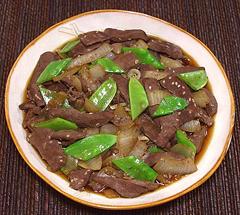
Baseline
For years before the Heart Attack, I had been losing weight, slowly but successfully. The Heart Attack caused a good weight loss, and I kept it up to about double that. My baseline weight was now 173.5, within sight of my long held goal of 169, but that was proving hard to get to, particularly with my intense involvement with food.
During this period my breakfast was hot water, an orange, and boiled hot dogs (or sometimes sausages) with plenty or mustard. That seemed less than ideal, and I was getting quite tired of hot dogs. I switched to a moderate sized red potato with plenty of extra virgin olive oil. This was breakfast for most of a year.
The Main Event
Then I gained about 7 pounds over baseline. It wasn't just the potatoes at fault, but I stopped eating them to accelerate the loss, and resisted eating anything with calories during the day. Dinner stayed about the same. This was working.
Then I had my first appointment with SC Heart to participate in a clinical trial of a new heart medication. They took so many blood samples during the day, I decided to have liver for dinner to help rebuild the blood supply. I found a very excellent Venezuelan recipe that I subsequently wrote up for my Web site.
But, I was getting tired of just an orange and hot water for breakfast, it seemed less than satisfying. I found a solution. I had a jar of hon dash granuls, used to make an instant dashi broth. Dashi is the foundation of Japanese cuisine. Today, instant dashi granuls are much used by Japanese housewives who no longer have time to make real dashi except for special occasions. I enjoyed this, having about three teacups full every morning. Things were going well.
Then, about a week later I had another appointment with SC Heart. Again the many blood samples taken during the day, so again liver. I had decided all the liver and onions recipes on my Web site needed review and updating, so I selected the Korean one and made it.
I wasn't entirely satisfied with the result, so I bought another liver and made it again with adjustments. I was now satisfied with the recipe, but the next day I had a bad case of the runs. This mystified me, as I'd never had such a problem with liver in the past. Anyway that evening I ate the second third of the recipe, and the next day the runs seemed a little worse - and that evening I had the last third. Same runs.
With no more liver I expected recovery, but none came, if anything, it was worse. This was getting serious, my weight had fallen to 167.5, well below my long term goal of 169, and I was afraid to leave the house. I looked up causes for persistent diarrhea on PubMed, but none seemed applicable.
So, I thought a lot about this. Clearly it wasn't the liver. I finally realized the only significant change was the dashi, so the next day I had plain water again. No change during the day, but in the evening it seemed just a little different. The morning after, I could fart again without disaster. My digestion was still a little off, but the runs were gone.
Well, so much for the foundation of Japanese cuisine. Maybe real dashi wouldn't do this, but it's too much of a hassle for me to try to find out.
For Science: The amount of Hon Dashi being used was a little less than a teaspoon a day. Why did it take so long for symptoms to begin? Possibly because I was using a batch several years old for the first week or more.

